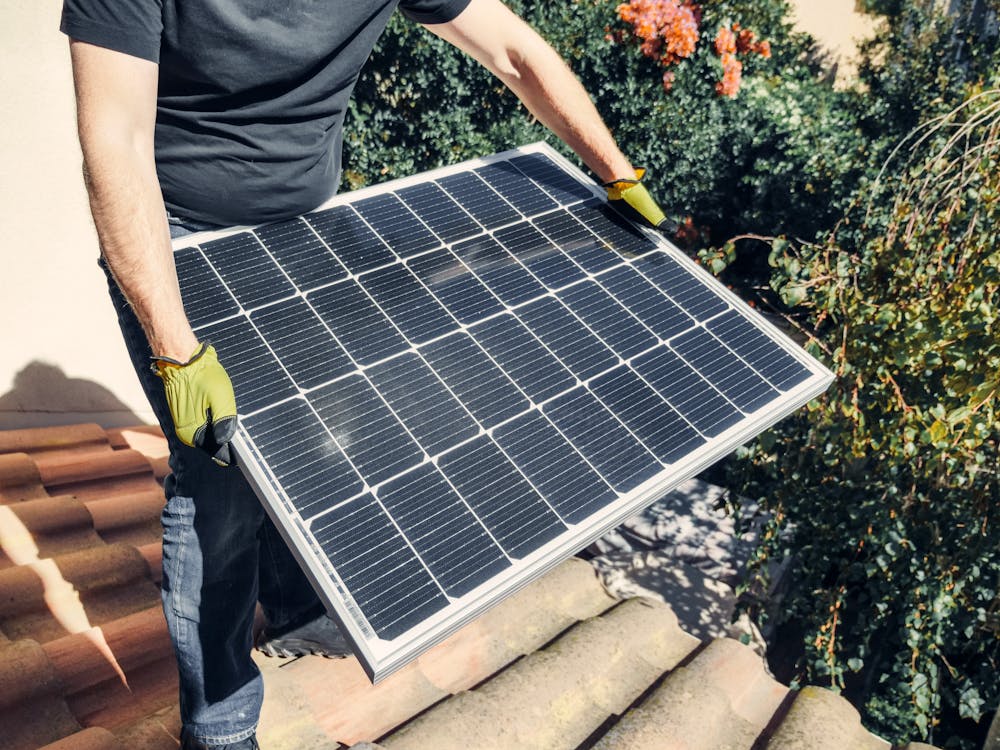How to Choose the Right Solar Panels for Your Home


Ahmed Khan
Solar Energy Specialist
Choosing the right solar panels for your home is a significant decision that can impact your energy production and savings for decades to come. This comprehensive guide will walk you through the key factors to consider when selecting solar panels.
Types of Solar Panels
There are three main types of solar panels available for residential use:
Monocrystalline Solar Panels
Monocrystalline panels are made from a single crystal structure, giving them a uniform black appearance. They are the most efficient type of solar panel, typically converting 20-22% of sunlight into electricity. They also have the longest lifespan, often coming with 25-year warranties.
Polycrystalline Solar Panels
Polycrystalline panels are made from multiple crystal structures, giving them a blueish speckled appearance. They are slightly less efficient than monocrystalline panels (15-17% efficiency) but are more affordable. They typically come with 25-year warranties as well.
Thin-Film Solar Panels
Thin-film panels are made by depositing a thin layer of photovoltaic material onto a substrate. They are the least efficient (10-13% efficiency) but are flexible and lightweight. They are less common for residential installations but may be suitable for certain applications.
Key Factors to Consider
Efficiency
Panel efficiency refers to how much of the sun's energy the panel can convert into electricity. Higher efficiency panels will generate more electricity in the same amount of space, which is particularly important if you have limited roof space.
Power Output (Wattage)
Solar panels are rated by their power output in watts. Most residential panels range from 250W to 400W. Higher wattage panels will generate more electricity, but they may also be larger and more expensive.
Temperature Coefficient
Solar panels become less efficient as they heat up. The temperature coefficient tells you how much the panel's efficiency will decrease for each degree above 25°C (77°F). Look for panels with a lower temperature coefficient, especially if you live in a hot climate.
Warranty
Most solar panels come with two warranties: a product warranty (typically 10-12 years) and a performance warranty (typically 25 years). The performance warranty guarantees that the panel will still produce at least 80% of its rated power after 25 years.
Brand and Manufacturer
Choose panels from reputable manufacturers with a proven track record. Some of the top solar panel brands include SunPower, LG, Panasonic, Canadian Solar, and Jinko Solar.
Cost and Value
While it may be tempting to choose the cheapest panels, consider the long-term value. More efficient panels may cost more upfront but could save you more money over their lifetime by generating more electricity.
Sizing Your Solar System
To determine how many solar panels you need, you'll need to consider:
- Your energy consumption (in kWh)
- The amount of sunlight your location receives
- The efficiency and wattage of the panels you choose
- The available space on your roof
A professional solar installer can help you calculate the optimal system size for your needs.
Conclusion
Selecting the right solar panels involves balancing efficiency, cost, quality, and your specific energy needs. By understanding the different types of panels and key factors to consider, you can make an informed decision that will provide clean, renewable energy for your home for decades to come.
At Solar Express, we offer a wide range of high-quality solar panels from top manufacturers. Our solar experts can help you choose the perfect panels for your home and budget. Contact us today for a free consultation!
Share this article
Related Articles

Understanding Net Metering in Pakistan
Everything you need to know about net metering policies in Pakistan and how they can help you maximize your solar investment.
Read More
Solar Battery Storage: Is It Worth the Investment?
Explore the pros and cons of adding battery storage to your solar system and determine if it's the right choice for your energy needs.
Read More